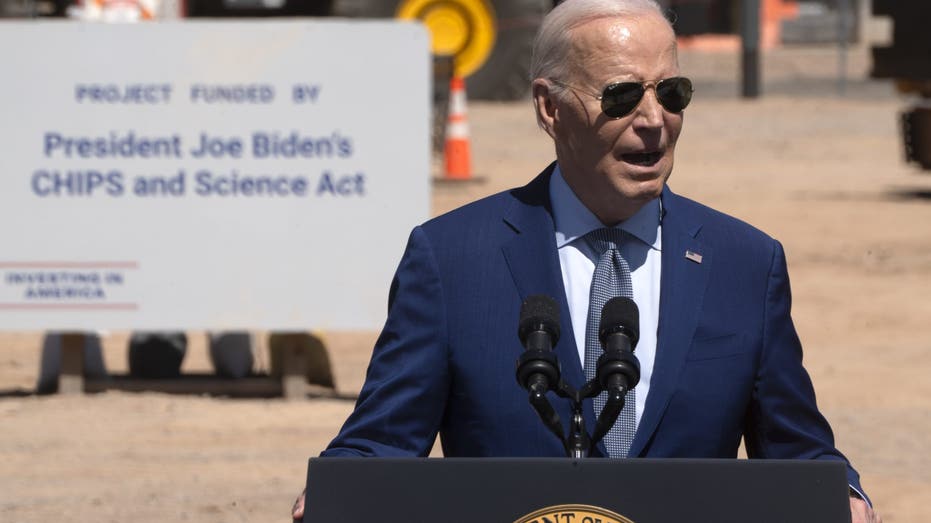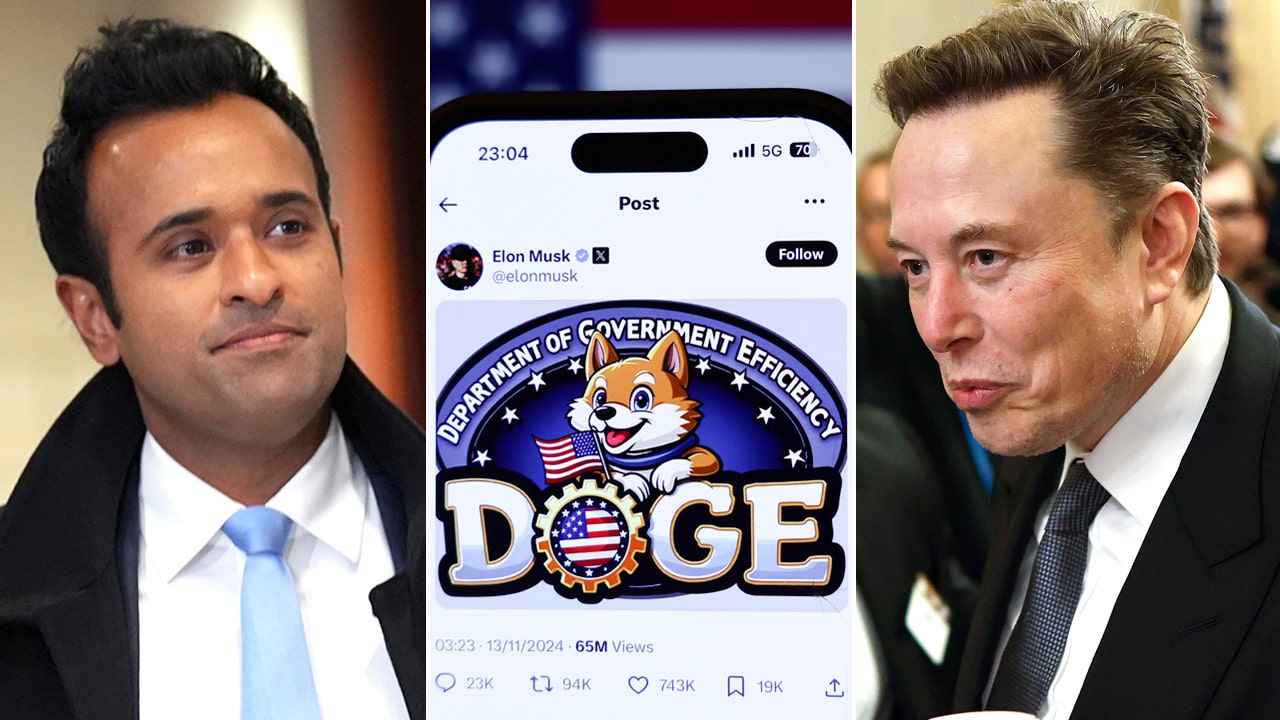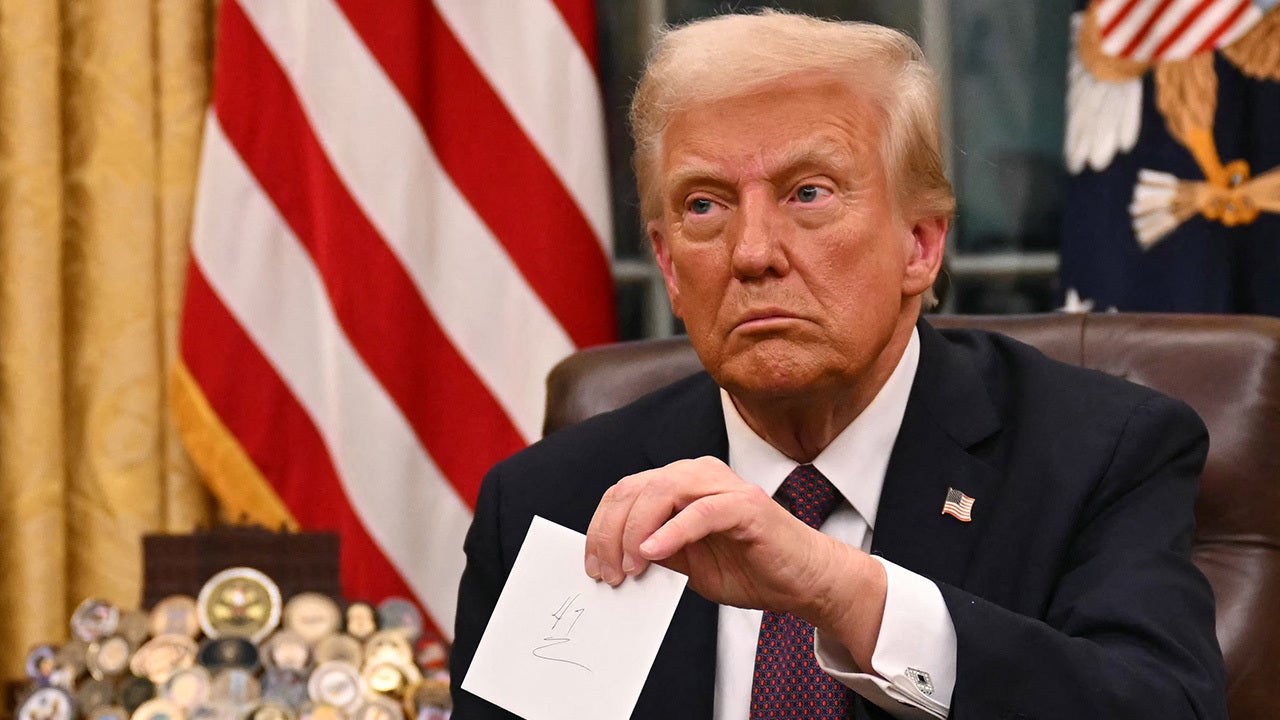The Biden administration has already awarded tens of billions of dollars under the bipartisan CHIPS and Science Act passed in 2022 for the purpose of boosting domestic semiconductor production, but President Donald Trump’s return to the White House has sparked speculation over the future of the projects.
Trump slammed the legislation ahead of the election, saying during his interview on “The Joe Rogan Experience” in October, “That chip deal is so bad.” The president criticized sending billions of taxpayer dollars to “rich companies” and suggested imposing tariffs on foreign-made chips would be a better way to move production to the U.S.
GOP House Speaker Mike Johnson told the press in November that Republicans “probably will” try to repeal the CHIPS Act, but quickly walked back his comments and said in a later statement that the legislation was “not on the agenda for repeal.”
Then last month, American Enterprise Institute Senior Fellow Claude Barfield wrote a scathing op-ed, saying “It is impossible to know at this point how serious Trump’s opposition to CHIPS funding will be when he takes over—he has often popped off during campaigns and not followed through later.”
TRUMP’S ‘EXTERNAL REVENUE SERVICE’ WILL COLLECT FROM IMPORTERS, NOT ‘FOREIGN SOURCES’
“In any case,” Barfield continued, “[Trump’s] potential scrapping of the CHIPS semiconductor ‘fabs’ funding is both dangerous and delusional.”
Barfield noted that the legislation had strong support from Republican lawmakers – particularly from states where CHIPS Act funding is supporting new facilities and jobs.

But Trump’s nominee for secretary of commerce, Howard Lutnick, recently told outgoing Commerce Secretary Gina Raimondo during a staff meeting that he was committed to moving forward with the program, according to a report from Bloomberg last week, which cited people familiar.
SHOULD STRUGGLING INTEL RECEIVE BILLIONS IN TAXPAYER DOLLARS?
For now, at least one chipmaker appears confident that the Trump administration will continue funding its manufacturing projects in the U.S. Taiwan Semiconductor Manufacturing Co. (TSMC) CFO Wendell Huang recently told CNBC the firm expects it will still receive the $6.6 billion it was awarded to build three facilities in Arizona.
The chief beneficiary of the CHIPS Act, Intel, made sure to mention the program when congratulating Trump on his inauguration on Monday.
| Ticker | Security | Last | Change | Change % |
|---|---|---|---|---|
| INTC | INTEL CORP. | 21.49 | +1.83 | +9.31% |
Industry watchers expect the CHIPS Act to remain in place under Trump 2.0, save for some possible tweaks.
BIDEN’S MAJOR SEMICONDUCTOR PUSH IS QUIETLY RIDDLED WITH DEI INITIATIVES
Scott Lincicome, vice president of general economics and trade at the Cato Institute, told FOX Business in an interview that his guess is there might be superficial changes to the enforcement of the law, but he sees major changes as highly unlikely.

“If you flash back to 2020 when TSMC first made its announcement in Arizona, Trump was a huge cheerleader,” Lincicome said, noting that the first Trump administration worked behind the scenes to support TSMC’s efforts. “That was pre-CHIPS, but it’s basically the same stuff.”
He pointed to Trump’s goals of onshoring semiconductor production, the interest in national security related to manufacturing chips in the U.S., and the fact that the chip projects are in politically important states.
“Put that all together, I don’t see bottom line figures changing on the CHIPS Act at all,” he said. “You might see some changes regarding how the Biden administration implemented the law – you know, they had crazy things in there, like mandating childcare for construction workers, and there’s some DEI-related stuff…and so you might see those things pulled.”












